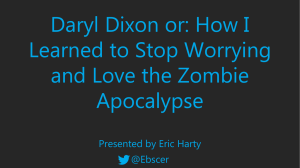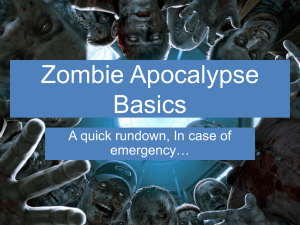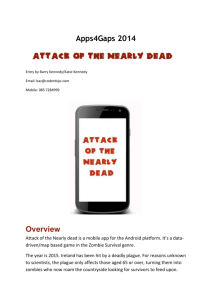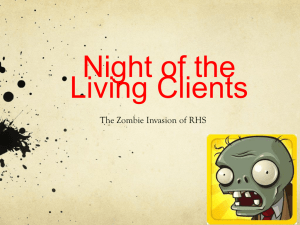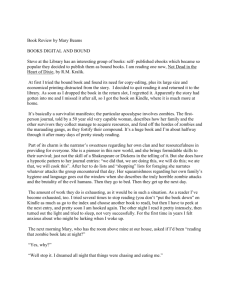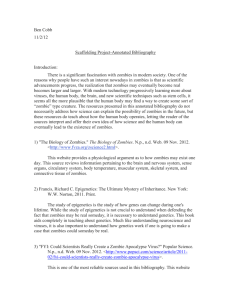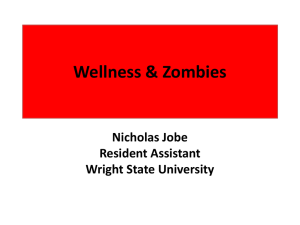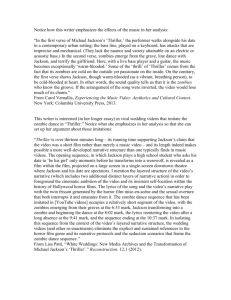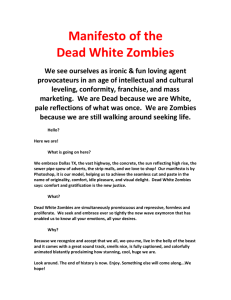Cornerstone sourcesKristen Clemons do Vale, Simone. "Trash Mob
advertisement
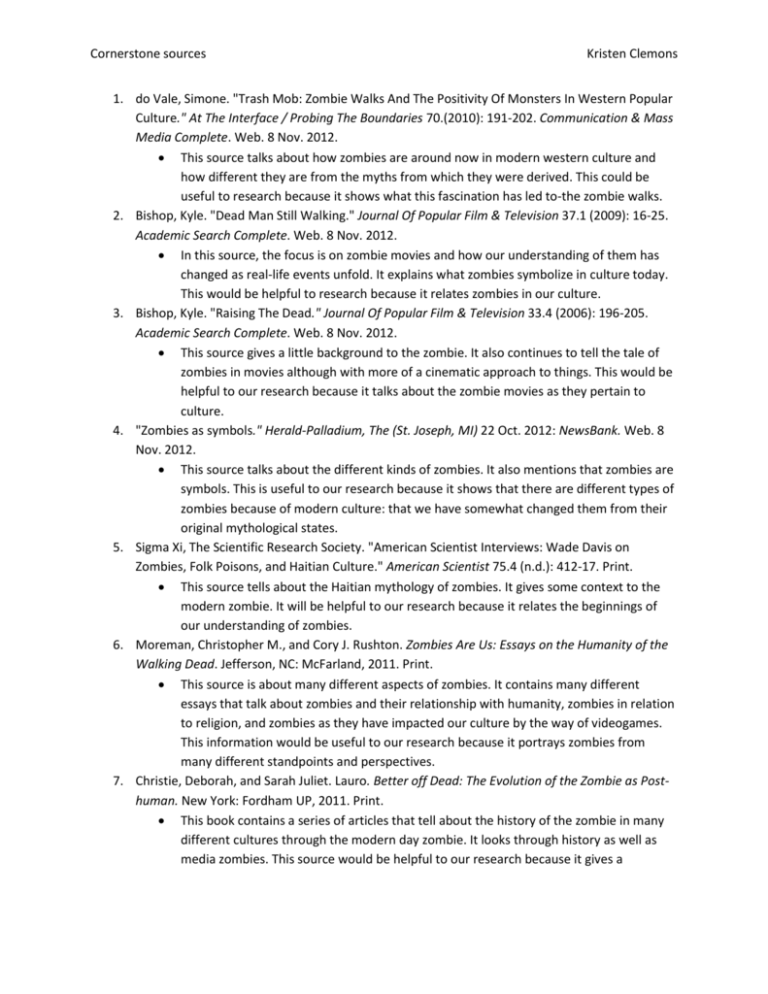
Cornerstone sources Kristen Clemons 1. do Vale, Simone. "Trash Mob: Zombie Walks And The Positivity Of Monsters In Western Popular Culture." At The Interface / Probing The Boundaries 70.(2010): 191-202. Communication & Mass Media Complete. Web. 8 Nov. 2012. This source talks about how zombies are around now in modern western culture and how different they are from the myths from which they were derived. This could be useful to research because it shows what this fascination has led to-the zombie walks. 2. Bishop, Kyle. "Dead Man Still Walking." Journal Of Popular Film & Television 37.1 (2009): 16-25. Academic Search Complete. Web. 8 Nov. 2012. In this source, the focus is on zombie movies and how our understanding of them has changed as real-life events unfold. It explains what zombies symbolize in culture today. This would be helpful to research because it relates zombies in our culture. 3. Bishop, Kyle. "Raising The Dead." Journal Of Popular Film & Television 33.4 (2006): 196-205. Academic Search Complete. Web. 8 Nov. 2012. This source gives a little background to the zombie. It also continues to tell the tale of zombies in movies although with more of a cinematic approach to things. This would be helpful to our research because it talks about the zombie movies as they pertain to culture. 4. "Zombies as symbols." Herald-Palladium, The (St. Joseph, MI) 22 Oct. 2012: NewsBank. Web. 8 Nov. 2012. This source talks about the different kinds of zombies. It also mentions that zombies are symbols. This is useful to our research because it shows that there are different types of zombies because of modern culture: that we have somewhat changed them from their original mythological states. 5. Sigma Xi, The Scientific Research Society. "American Scientist Interviews: Wade Davis on Zombies, Folk Poisons, and Haitian Culture." American Scientist 75.4 (n.d.): 412-17. Print. This source tells about the Haitian mythology of zombies. It gives some context to the modern zombie. It will be helpful to our research because it relates the beginnings of our understanding of zombies. 6. Moreman, Christopher M., and Cory J. Rushton. Zombies Are Us: Essays on the Humanity of the Walking Dead. Jefferson, NC: McFarland, 2011. Print. This source is about many different aspects of zombies. It contains many different essays that talk about zombies and their relationship with humanity, zombies in relation to religion, and zombies as they have impacted our culture by the way of videogames. This information would be useful to our research because it portrays zombies from many different standpoints and perspectives. 7. Christie, Deborah, and Sarah Juliet. Lauro. Better off Dead: The Evolution of the Zombie as Posthuman. New York: Fordham UP, 2011. Print. This book contains a series of articles that tell about the history of the zombie in many different cultures through the modern day zombie. It looks through history as well as media zombies. This source would be helpful to our research because it gives a Cornerstone sources Kristen Clemons background for the zombie as well as a how the zombie has transformed into how it is depicted today. 8. Boluk, Stephanie, and Wylie Lenz. Generation Zombie: Essays on the Living Dead in Modern Culture. Jefferson, NC: McFarland, 2011. Print This source relates different essays about zombies. It discusses the impact of zombies on the modern culture and its role in mass psychology. This is relevant to our research because it can help us understand about the way these creatures captivate the previous and current generation.
